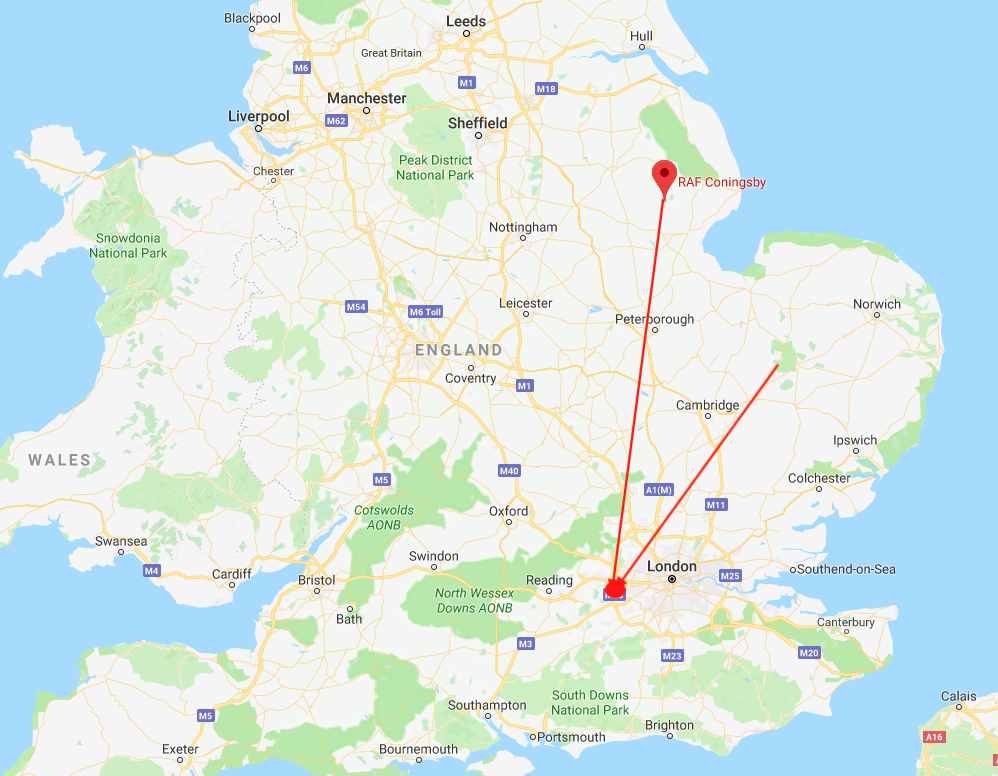At Windsor Castle on Saturday, Prince Harry will marry the American actress Meghan Markle and bring some fresh DNA to the royal family!
But because of particular public interest in the marriage and the longstanding focus of both Irish Republican and Islamic terrorists in targeting royals, Harry and Markle have an unusually large protective detail. Indeed, at times this detail has been more significant than that afforded to either the queen or the prime minister.
The couple’s security will rise to an even more significant level on Saturday.
To prevent a vehicular terrorist attack, a no-fly zone over Windsor will be in force alongside road barriers on the ground. As the map below illustrates, were a plane to be detected on course for the no-fly zone (the red circle west of London) it would be intercepted by Royal Air Force Typhoon jets from RAF Coningsby. If the RAF jets were unavailable for some reason, the reaction alert would pass to U.S. Air Force F-15s stationed at RAF Lakenheath (the southernmost line).

Harry, Markle, and the crowds will also receive two forms of protection on the ground.
First off, from the police. This element will begin with unarmed and armed Thames Valley police officers (responsible for Windsor) who will provide the preliminary search checkpoints and roving patrols. These officers will be supported by specialist sniper and counterterrorism units from the Metropolitan Police to include Britain’s equivalent of the FBI Hostage Rescue Team, the Counter Terrorist Specialist Firearms Officer, or CTFSO, teams.
Harry and Markle’s personal police security and that of their guests on the grounds of Windsor Castle will be provided by the Metropolitan Police’s Royalty and Specialist Protection division.
But there will also be a significant military support to the civil authorities in terms of the wedding.
While largely ceremonial, the Household Cavalry soldiers who form the couple’s procession escort will use their swords if necessary. Their officers will also be equipped with radio ear pieces with which to communicate with the tactical operations center. At the pure-security level, military special forces, in particular the Special Reconnaissance and the Special Air Service regiments, will also provide covert surveillance and response capabilities. Military explosives experts will also be on standby.
Yet while all these precautions are significant, they cannot guarantee security. Because of the British tradition of Royal proximity to the public on festive occasions, security officials will be holding their breath until the wedding is completed and all the guests have gone home.
